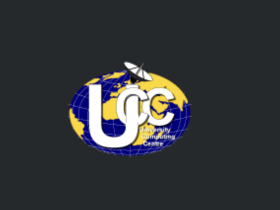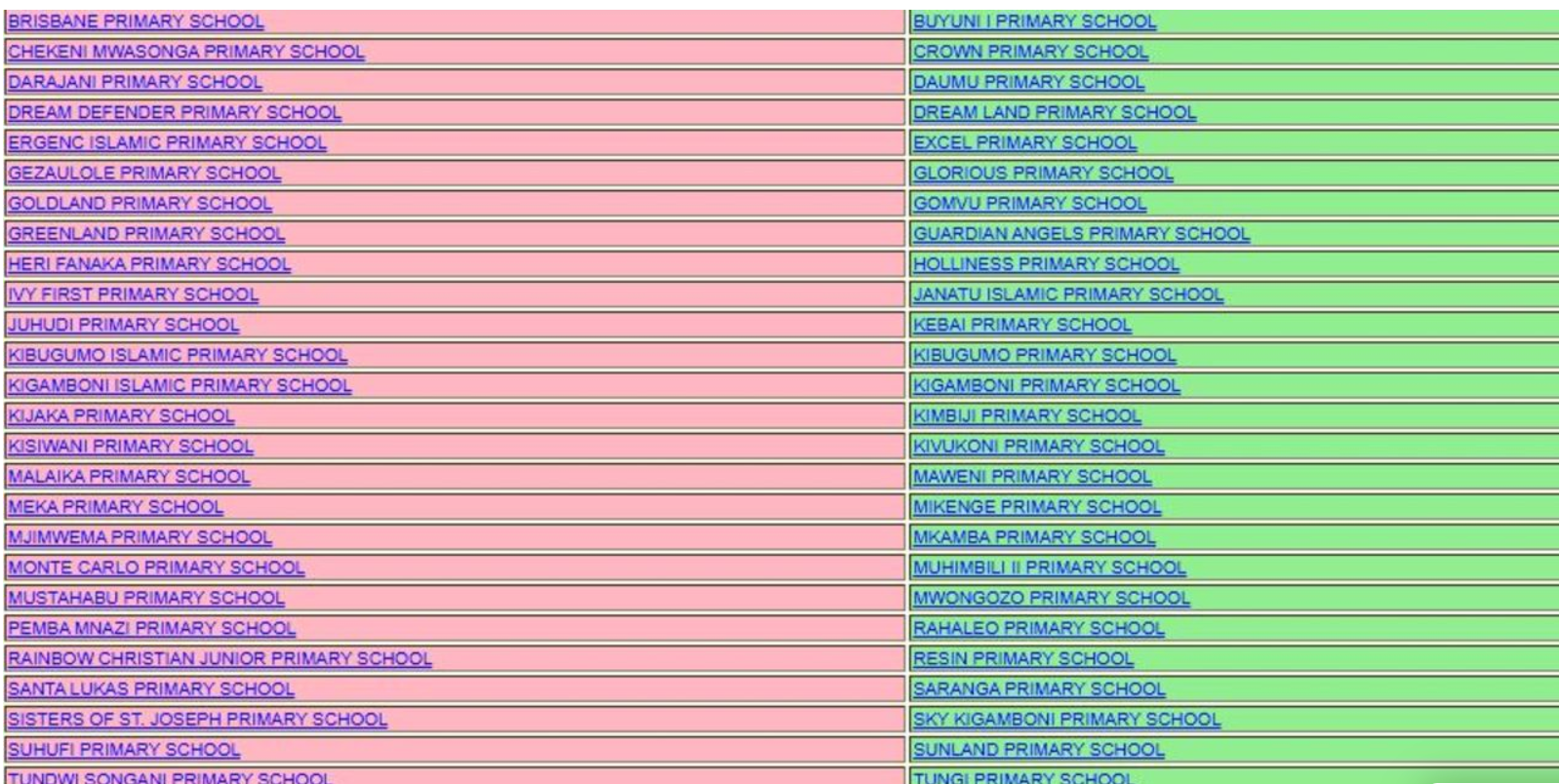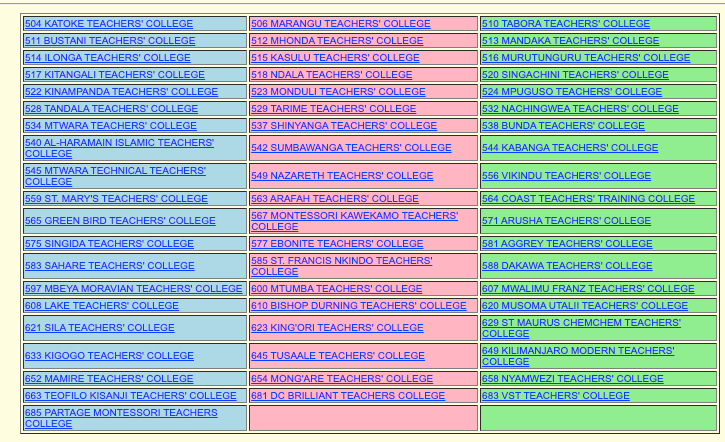
Diploma vs Degree Courses in Tanzania. Education in Tanzania is provided by both the public and private sectors, starting with pre-primary education, followed by primary, secondary ordinary, secondary advanced, and ideally, university level education. Free and accessible education is a human right in Tanzania. The Tanzanian government began to emphasize the importance of education shortly after its independence in 1961.
Curriculum is standardized by level, and it is the basis for the national examinations. Achievement levels are important, yet there are various causes of children not receiving the education that they need, including the need to help families with work, poor accessibility, and a variety of learning disabilities.

Introduction to Higher Education in Tanzania
The higher education landscape in Tanzania is characterized by a variety of institutions offering diverse programs that cater to the educational needs of the population. This system is primarily composed of universities, colleges, and vocational training institutes, each playing a crucial role in shaping the workforce and contributing to national development. Universities provide comprehensive degree programs aimed at fostering critical thinking, research capabilities, and professional skills, while colleges offer diploma courses that focus on practical knowledge and hands-on training.
Diploma courses typically take a shorter duration to complete compared to degree programs, which may offer a quicker pathway for students seeking immediate employment. These courses are often designed to align closely with the demands of specific industries, thus facilitating skill development that meets labor market requirements. On the other hand, degree courses delve into more theoretical frameworks, enabling students to develop a deeper understanding of their chosen fields. The academic rigor associated with degree programs often appeals to students aiming for advanced career opportunities or those interested in pursuing postgraduate studies.
The significance of both diploma and degree programs in Tanzania cannot be overstated, as they each contribute to the country’s educational ecosystem. With increasing global competition and a rapidly changing job market, the need for a well-educated workforce is paramount. The Tanzanian government has recognized this need and continues to invest in higher education, promoting both diploma and degree courses as essential pathways for skill enhancement and knowledge acquisition. Understanding the nuances of these programs sets the stage for a comprehensive comparison that highlights their respective advantages and fits individual aspirations.
Defining Diploma and Degree Courses
In the educational landscape of Tanzania, diploma and degree courses represent two distinct pathways for academic and professional development. While both types of courses seek to equip students with valuable skills and knowledge, they differ significantly in duration, curriculum, and the credentials awarded upon completion.
A diploma course typically has a shorter duration, usually spanning one to three years. These programs are designed to provide students with practical skills and foundational knowledge necessary for specific vocational fields. The curriculum of diploma courses often emphasizes hands-on training, practical learning, and direct application of concepts within a chosen profession. Upon completion, students are awarded a diploma certificate, which is recognized as a qualification for entry-level positions within various industries.
Conversely, degree courses usually require a longer commitment, lasting three to four years or more, depending on the field of study. Degree programs are structured to provide a more comprehensive education, incorporating both theoretical frameworks and practical applications. The curriculum is broader and more in-depth, often including general education courses alongside specialized studies. Graduates of degree programs earn a degree, such as a Bachelor of Arts or Bachelor of Science, which is generally viewed as a higher academic credential and may open doors to advanced career opportunities and higher earning potential.
Both educational pathways serve important roles in the Tanzanian context, addressing different needs and aspirations within the workforce. Understanding the distinctions between diploma and degree courses is essential for prospective students as they navigate their educational options and consider their long-term career plans.
Duration and Structure of Programs
In the context of Tanzania’s higher education landscape, understanding the duration and structure of diploma and degree courses is crucial for students making informed decisions about their futures. Typically, diploma programs are designed to be shorter, often spanning between one to three years. These programs provide practical skills and specific knowledge targeted at particular career paths, and they generally require fewer credit hours than degree courses. This condensed structure enables students to enter the workforce more quickly, which can be an appealing option for those eager to begin their careers.
On the other hand, degree courses usually take a more extensive commitment, often requiring a minimum of three to four years to complete. These programs are more academically rigorous and include a broader range of subjects, which helps cultivate critical thinking and analytical skills. Degree courses typically involve completing a greater number of credits or modules, reflecting an in-depth study of the chosen field. This additional academic workload prepares graduates for more advanced career opportunities or further studies, such as master’s programs.
Both diploma and degree programs can be pursued on a part-time or full-time basis, allowing for flexibility in how students manage their educational commitments alongside personal responsibilities or work. Full-time students generally follow a structured timetable, engaging in lectures, practical sessions, and assessments within a standardized timeframe. Conversely, part-time students may experience more diverse scheduling options, which can be beneficial for those who may be balancing other life commitments while pursuing their education. Ultimately, the choice between a diploma and a degree program often hinges on the desired balance of time, commitment, and career aspirations.
Career Opportunities and Employment Prospects
In Tanzania, the job market presents a complex landscape for both diploma and degree holders. To understand the employment opportunities available, it is essential to recognize the differences in qualifications and their perceived value by employers across various industries. Traditionally, degree holders are viewed as having a more comprehensive education, which often allows them access to higher-level positions, managerial roles, and specialized fields such as engineering, medicine, and finance. Employers tend to regard degrees as evidence of a deeper theoretical understanding, which can lead to employment in prestigious organizations and a higher earning potential.
Conversely, diploma holders typically enter the workforce with practical skills tailored to specific trades or sectors, such as information technology, health care, and business administration. These programs often emphasize hands-on training, making diploma graduates valuable in roles that require immediate contributions. In sectors like hospitality, technical services, and vocational trades, employers frequently favor the practical expertise of diploma holders, resulting in significant job opportunities in these areas.
Salary expectations also vary between the two groups. Degree holders often command higher salaries and better benefits, reflecting the level of education and the responsibilities associated with their roles. In contrast, diploma graduates might earn less initially but can achieve upward mobility through experience and continuous skills development. The Tanzanian job market increasingly values qualifications complemented by actual work experience, meaning both diploma and degree holders can progress in their careers with dedication and further training.
Industries in Tanzania are gradually recognizing the importance of both educational pathways, tailoring their recruitment strategies to encompass the strengths of each qualification. As such, individuals pursuing either route can find fulfilling career paths, provided they align their skills and aspirations with market demands.
Cost of Education: Diploma vs Degree
When considering educational advancements in Tanzania, one of the most significant factors is the cost associated with pursuing a diploma versus a degree. Tuition fees are often the first consideration, as they can vary markedly between these two types of programs. Generally, diploma courses tend to be more affordable, with lower tuition fees due to shorter durations and focused curricula designed for specific vocational skills.
In contrast, degree programs typically require a longer commitment, often spanning three to four years. Consequently, the tuition fees for degree courses are higher, reflecting the comprehensive education provided. Students must factor in additional expenses such as registration fees, examination fees, and materials. Notably, the cost of books and other learning materials can also accumulate, with degree students generally required to purchase more resources compared to those in diploma programs.
Living expenses are another essential consideration, as students may need to budget for accommodation, food, and transport. In urban areas where many institutions are located, these costs can be significant. Diploma students usually spend less time on campus, which can lead to lower overall living costs compared to degree students who are often engaged in a longer academic journey. However, this can vary based on the personal choices regarding housing and lifestyle.
Additionally, financial aid is an essential element for many students when deciding between diploma and degree programs. Numerous scholarship opportunities exist in Tanzania, which can help alleviate the financial burden. Several institutions offer scholarships based on merit or financial need, making higher education more accessible to students keen on pursuing either diplomas or degrees. By carefully evaluating the costs associated with each option, students can make well-informed decisions that align with their career aspirations and financial circumstances.
Quality of Education and Institutional Reputation
The quality of education in Tanzania is significantly influenced by both the type of program—diploma or degree—and the reputation of the institution delivering the education. Diploma programs, often more practice-oriented, are designed to equip students with specific skills that are immediately applicable in the workforce. Conversely, degree programs tend to provide a broader theoretical foundation alongside practical training, focusing on critical thinking and research skills.
One essential factor that affects educational quality is the qualifications of the faculty members. Institutions with highly qualified faculty often provide enriching learning experiences, as educators who possess advanced degrees and extensive industry experience enhance the curriculum’s relevance. In contrast, institutions with lesser faculty qualifications may struggle to offer students the same depth of knowledge and mentorship opportunities.
Institutional reputation is another critical determinant of educational quality. Well-established universities and colleges in Tanzania generally foster a strong academic environment, as they tend to invest in better resources, facilities, and extracurricular activities. This often leads to higher student satisfaction and better outcomes post-graduation. Institutions that have earned accreditation from recognized bodies also signify that they meet specific educational standards, further impacting students’ learning experiences.
Furthermore, the correlations between institutional reputation and student outcomes cannot be overstated. Graduates from reputable institutions often enjoy better job placement rates, as employers are more inclined to hire individuals from schools that are respected within the industry. In this landscape, the choice between diploma and degree programs should consider not only the content and structure of the courses but also the institution’s standing in Tanzania’s educational framework. Therefore, students must conduct thorough research to select programs from institutions whose quality of education aligns with their career aspirations.
Flexibility and Accessibility of Programs
In Tanzania, the accessibility of diploma and degree programs significantly influences prospective students’ choices regarding their educational paths. Generally, diploma programs tend to offer a higher degree of flexibility compared to traditional degree courses. This is largely due to their shorter duration, often ranging from one to three years, which allows students to enter the workforce quickly while pursuing further education on a part-time basis simultaneously.
Regarding location, diploma programs are frequently associated with vocational institutions, which can be found in various urban and rural settings across Tanzania. Many of these institutions are strategically situated to cater to local populations, thereby enhancing accessibility. Conversely, degree programs are typically confined to larger universities located in major cities. This geographical disparity can impact students residing in remote areas, as they may encounter higher travel costs and logistical challenges when commuting to university.
Moreover, the rise of online learning platforms has introduced an additional layer of flexibility for both diploma and degree courses. Several institutions in Tanzania now offer online modules, enabling students to learn at their own pace without being bound by the traditional classroom setting. This flexibility is particularly advantageous for working adults and those balancing family commitments. Furthermore, many institutions are increasingly offering evening and weekend classes, designed to accommodate students who may not be able to attend weekday sessions due to occupational obligations.
Ultimately, the availability of diverse learning options, such as part-time and flexible schedules, plays a pivotal role in a student’s decision-making process. When evaluating diploma versus degree programs, the accessibility and educational flexibility offered by various institutions should be a critical consideration, aligning with personal circumstances and career aspirations.
Personal Development and Lifelong Learning
In Tanzania, education serves as a foundational pillar for personal development and lifelong learning, offering diverse pathways through diploma and degree courses. Both programs play a pivotal role in fostering critical skills that contribute to an individual’s growth. Diploma courses often emphasize practical skills and hands-on experience, enabling students to acquire job-specific competencies rapidly. In contrast, degree programs usually encompass a broader curriculum, cultivating analytical thinking and theoretical knowledge essential for various professions.
One of the key aspects of personal development within these educational frameworks is the emphasis on soft skills. Communication, teamwork, leadership, and emotional intelligence are integral components of both diploma and degree courses. These soft skills not only enhance employability but also contribute significantly to personal growth and effective interaction within society. In today’s competitive landscape, employers increasingly value individuals who can blend technical proficiency with strong interpersonal capabilities.
Moreover, critical thinking is a critical skill honed through both diploma and degree programs. Through problem-solving challenges, students are encouraged to critically evaluate situations, make informed decisions, and adapt their knowledge to real-world contexts. This ability to think critically is essential not only in the workplace but also in everyday life, as it empowers individuals to navigate complex situations and contribute meaningfully to their communities.
Experiential learning further enriches the educational journey, providing students with opportunities to apply theoretical knowledge in practical settings. Internships, projects, and community engagements related to diploma and degree courses amplify learning outcomes and prepare students for their future careers. By engaging with real-world challenges, individuals gain insights that are invaluable for lifelong learning, equipping them to embrace new knowledge and adapt to the ever-evolving job market.
In conclusion, both diploma and degree courses in Tanzania significantly contribute to personal development and lifelong learning by equipping individuals with essential skills and knowledge. The focus on soft skills, critical thinking, and experiential learning enhances employability while fostering a commitment to continuous education and self-improvement.
Conclusion: Making the Right Choice
Choosing between diploma and degree courses in Tanzania is a significant decision that can profoundly impact one’s career trajectory and personal development. As discussed in this blog post, both educational pathways offer unique benefits and can cater to different aspirations and professional goals. Diplomats are often designed for practical skills and quicker entry into the workforce, making them an attractive option for individuals seeking immediate employment or a specific vocational skill set. On the other hand, degree programs provide a more comprehensive educational experience, equipping graduates with in-depth knowledge and critical thinking skills necessary for various professions.
When considering which path to pursue, it is essential for individuals to evaluate their personal circumstances and career aspirations. Factors such as financial resources, time commitments, and job market demands should be taken into account. For instance, if a student aims to enter a specific trade or job quickly, enrolling in a diploma course may be advantageous. Conversely, those aspiring for higher managerial positions or specialized roles may find that a degree is more beneficial in the long term.
Additionally, it is critical to recognize that both diploma and degree courses can lead to fulfilling career opportunities. The Tanzanian job market increasingly values both qualifications, with various sectors necessitating skilled individuals trained through either path. As the workforce evolves, the importance of hands-on experience gained through diploma programs and the analytical skills sharpened in degree programs reinforces the idea that there is no one-size-fits-all solution.
Ultimately, making an informed decision involves self-reflection and research. Individuals should explore educational institutions, seek advice from industry professionals, and consider their long-term career goals. By carefully weighing these factors, prospective students can better position themselves for success in their chosen fields, whether through diploma or degree courses in Tanzania.













Leave a Reply
View Comments